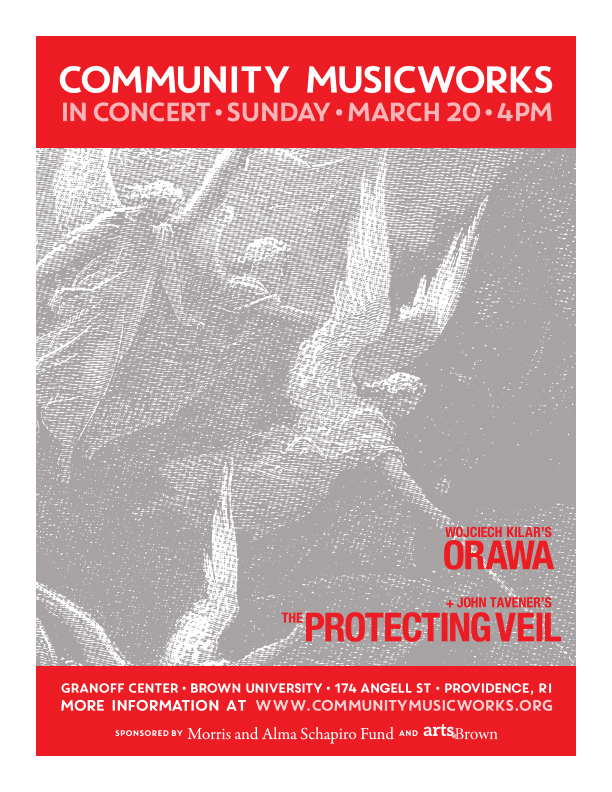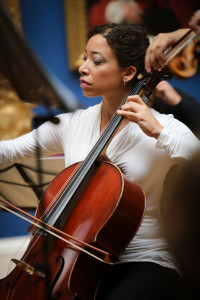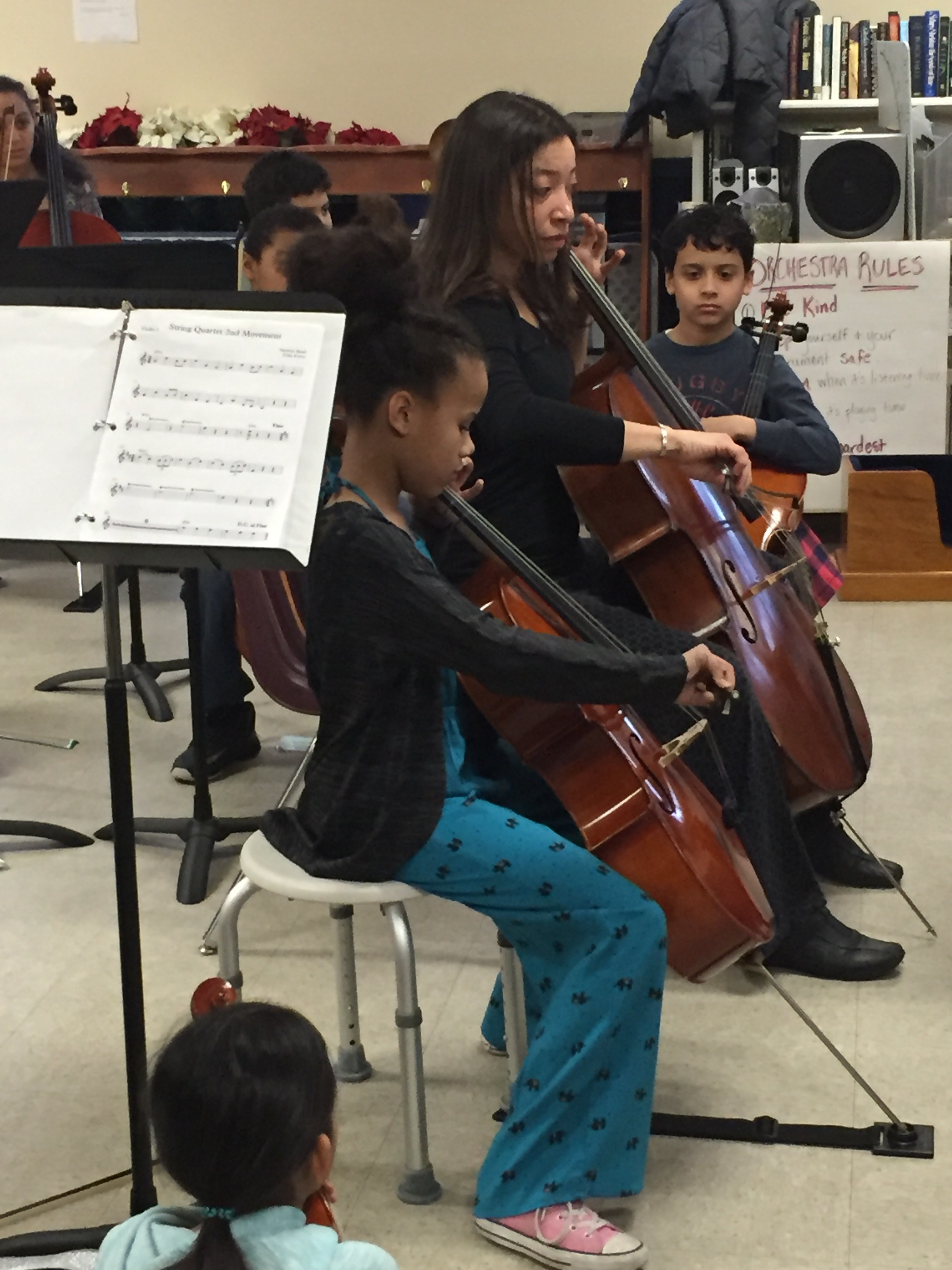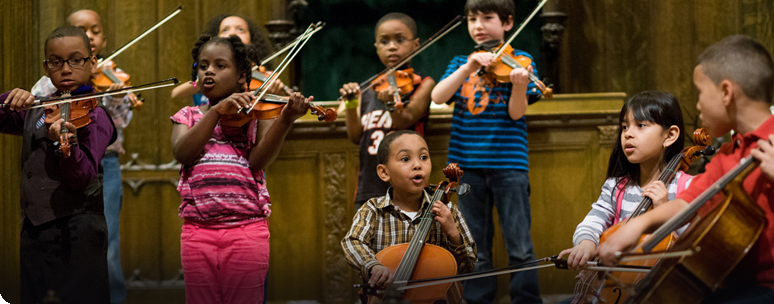
The CMW Players are performing John Tavener’s rich piece, “The Protecting Veil,” in two events over the weekend of March 19-20. Writer and CMW board member Jill Pearlman spoke to Resident Musician Adrienne Taylor about her connection to the piece.
As a college student, Adrienne Taylor heard “The Protecting Veil,” an extended meditative piece by British composer John Tavener, and the sumptuous music lodged inside her. It wasn’t the most obvious for a teenager – it is ethereal, restrained, and without giving away the story line, the cello plays the voice of the Mother of God. “It was so beautiful,” Taylor remembers. “It became one of the pieces that I thought of as a dream to play.”

On March 19 and 20, CMW Players will perform the piece to Taylor’s great pleasure and satisfaction. It is also a testament to her artistic commitment: she proposed it to CMW, arranged the score for a full orchestra, and of course, she is stepping into the dream of the solo cello.
John Tavener, who died in 2013 at age 69, was an unusual and powerful composer, knighted, popular and religiously inspired. Among his many works was “Songs for Athene,” which closed the funeral ceremony for Princess Diana. His originality, the force of his own metaphysical questing, could be consuming to everyone, including himself.
A convert to Russian Orthodox Church, Tavener became fixated in the late 1980s on a story commemorated in a holiday, Feast of the Protecting Veil. As Adrienne says, you don’t have to know the story to understand the music, but it helps: One evening in the 10th century, Greek believers in Constantinople saw an apparition: Mary and a host of saints and a large, glittering veil that she held over them. The Greeks were facing an attack by the Saracens, and the following day the Greeks prevailed. A visual image of divine care was given shape.
Crucially, this veil was seen, not heard, and Tavener the musician had to find language that would translate the visual into sound. Tavener has said that he wanted to paint with music, to make a lyrical “icon” using the music of the cello as a brush. Tavener built his composition on the eight stages of Mary’s life conveyed in eight sections based on eight Byzantine tones, starting with F major and descending down the scale. It lets go of traditional formality, and becomes 45 minutes of sound textures, extending, shimmering cello with a full orchestra.
As Taylor explains the structure, she cautions against thinking it “difficult.” She spent months working on the arrangement: “That meant a lot of late nights, a lot of coffee and sugar,” she says. In its structure, she found the unexpected. “The ideas Tavener uses are very simple,” Taylor says. “The same ones come back again and again. He stretches them out, inverts them, but all along, the structure follows a very clear pattern. Often you need to take a course in modern music to listen to music written in 20th century. I don’t think you need to know something about music to understand this.”
She loops back to the underlying concept of voice: “This is telling a story using solo cello as a voice.” Yet often Tavener alters the voice to the listener’s surprise. The composition pushes the limits of the cello by utilizing its total range: Tavener asked Stephen Isserlis, the famed British cellist for whom he wrote the piece, what the highest notes he could play were, then wrote seven or eight minutes in that very highest range. Taylor had the good fortune to meet Isserlis in Boston, and discuss cellist to cellist certain intricacies of the playing.
The other slippery quality of “Protecting Veil” might be its intense religiosity. While listeners might hear the Orthodox content, Taylor feels its deep, transcendent, overflowing spirituality. “Radiance is spreading out from the cello, and the orchestra is an extension of her protecting veil.”
It is a profound experience of going beyond. Even Taylor playing the cello at the center can find herself so deeply immersed that she becomes almost lost in the music, not only as a musician navigating the upper strings on her instrument’s neck, but as a human.
“Even practicing, it is almost meditational. There are moments of ecstasy when I go almost beyond myself,” she says. “As a listener, you don’t have to be connected to a religion, you only need to come with a feeling of openness, without expectations. This is spiritual music, and everybody has a sense of the spiritual. By being human, you know everything you need to know.”
–Jill Pearlman
Providence-based writer Jill Pearlman worked in music journalism in New York for over a decade. She’s currently tapping some of her experiences for her novel, Clio’s Mobile Home. www.jillpearlman.com
The CMW Players perform Wojciech Kilar’s “Orawa” and John Tavener’s “The Protecting Veil” featuring Adrienne Taylor, cello soloist.
Saturday, March 19 at 4pm
Blessed Trinity Church
1340 Plymouth Ave, Fall River, MA
Admission is $10
Sunday, March 20 at 4pm
Granoff Center
Brown University
Admission is free and sponsored by:




